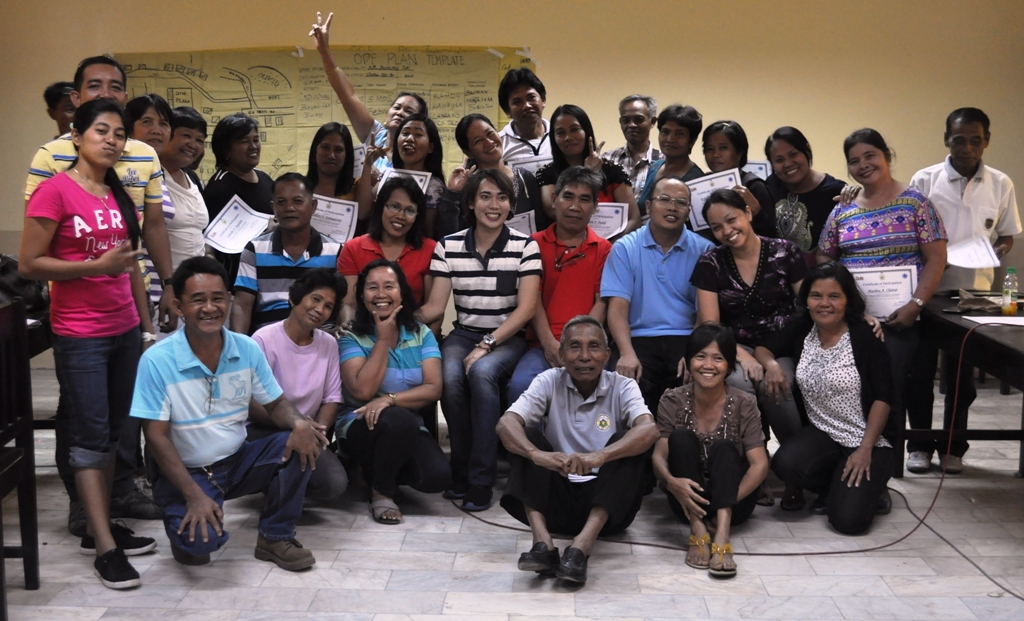
Dole Philippines, Inc. , through Mahintana Foundation, Inc. continues to assist communities in implementing development programs as recently, thirty (30) participants composed of barangay officials, sitio and purok leaders, Day Care teachers and Barangay Health Workers (BHW) of barangays Bololmala and Cebuano in Tupi, South Cotabato successfully graduated from a four-day Facilitators’ Training on Community-Led Total Sanitation , with training modules strengthened by a series of lectures, interactive workshops and community triggering aimed at addressing health and sanitation issues in their respective communities. Dolefil, funded the training on October 21-24, 2014 as part of its community project dubbed as Health Initiatives, Mitigation, Services and Opportunities for Growth of Tupi (HIMSOG-Tupi) implemented by Mahintana Foundation, Inc.
The training aims to introduce Community-Led Total Sanitation (CLTS) to field workers, project facilitators, and health officers who are actively involved in community-based water and sanitation activities, and enable them to implement, monitor and assess the CLTS approach and its outcome in their respective areas. Engr. Danny Pelias, Project Development Officer from the Municipal Planning and Development Office of LGU-Polomolok , Resource Person of the said training presented CLTS as an integrated approach to achieving and sustaining open defecation free (ODF) status. It utilizes participative rural assessment (PRA) methods to enable communities to analyze their sanitation conditions and collectively internalize the terrible impact of open defecation (OD) on public health and on the entire neighbourhood environment. The training module also included lectures effective facilitator and tips on facilitating CLTS sessions and community triggering focused on communication and leadership skills cultural sensitivity.

Training participants practice their facilitation skills as they shared inputs on CLTS to villagers, speaking in the vernacular , to ensure comprehension and understanding of the inputs.
Adding depth to the training was the triggering activity were participants identified and went to sitios/ puroks and were made to undergo the following process Climate Setting, Defecation Area Mapping, Defecation Area Transect or Transect Walk, Calculation of Tae (feces) and of Medical expenses, Faecal-Oral Transmission Mapping, Glass of Water Demonstration, Food and Feces Demonstration. In the afternoon, the participants were asked to document their experiences, reflections, issues and concerns and recommendation/actions taken during the triggering sessions.


